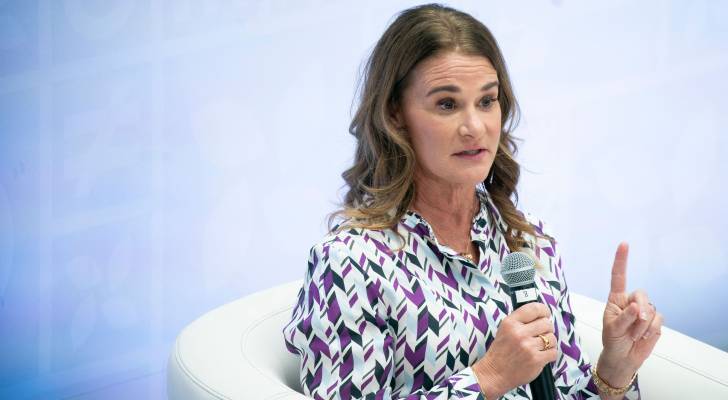
With an estimated net worth of $30.7 billion, Melinda French Gates can easily bankroll her daughter’s business without breaking a sweat. But at a recent summit, the billionaire philanthropist confirmed she is not funding the new venture.
Gates didn’t say which of her two daughters she was referring to, but 22-year-old Phoebe Gates recently launched Phia, an AI-powered shopping app, according to The Verge.
Don’t miss
- Thanks to Jeff Bezos, you can now become a landlord for as little as $100 — and no, you don’t have to deal with tenants or fix freezers. Here’s how
- I’m 49 years old and have nothing saved for retirement — what should I do? Don’t panic. Here are 6 of the easiest ways you can catch up (and fast)
- Robert Kiyosaki warns of a ‘Greater Depression’ coming to the US — with millions of Americans going poor. But he says these 2 ‘easy-money’ assets will bring in ‘great wealth’. How to get in now
“I wouldn’t put money into it,” Gates told host Amanda Davies at the *Power of Women’s Sports Summit presented by e.l.f. Beauty in London.
By holding back her financial support, Gates says her daughter gets the chance to test and validate the business idea with real investors and customers. If it’s a “real business,” Gates says, the venture will eventually find people willing to back it.
Phia has already attracted outside capital. According to GeekWire, the startup has raised $850,000, including $100,000 from Soma Capital, a $250,000 Stanford social entrepreneurship grant and $500,000 from angel investors such as Kris Jenner and Desiree Gruber.
Phoebe Gates and her co-founder, Sophia Kianni, have also secured a podcast deal to promote the venture. Her journey offers some valuable lessons for anyone looking to start a business.
Look for real-world traction
Despite the flashy headlines, most startups fail. Roughly 90% eventually collapse, according to the Founders Forum Group, with 42% failing because they couldn’t meet market demand.
In other words, the odds are stacked against you, and the most common pitfall is building something nobody wants to pay for.
To avoid this trap, try to find relatively cheap and quick ways to validate your business idea. Pitch the idea to angel investors or industry experts to see if they would bet real money on the venture’s success.
Better yet, look for paying customers to validate your business idea before you sink too much of your own money into it.
Read more: Want an extra $1,300,000 when you retire? Dave Ramsey says this 7-step plan ‘works every single time’ to kill debt, get rich in America — and that ‘anyone’ can do it
Customers are the best source of funding
According to the Small Business Administration, about 14% of small business owners relied on friends and family for funding in 2023.
More often, though, entrepreneurs turned to self-funding methods like credit cards or formal channels like banks or government agencies.
One of the most popular sources of funding was the business itself. Nearly 31% of small business owners relied on the corporation’s earned and retained earnings to fund and grow their ventures. In other words, paying customers can be your best source of startup capital.
If you’re launching something new, think about how to attract real customers first. For example, you could build a waitlist of clients who have already signalled interest in your product or service. You might also collect early deposits or presale revenue to help fund development.
Getting those early customers will take time and effort, especially in marketing, but it brings two major benefits: proving there’s real demand and creating early cash flow to support your growth.
What to read next
- You don’t have to be a millionaire to gain access to this $1B private real estate fund. In fact, you can get started with as little as $10 — here’s how
- Here are 5 ‘must have’ items that Americans (almost) always overpay for — and very quickly regret. How many are hurting you?
- Accredited investors can now buy into this $22 trillion asset class once reserved for elites – and become the landlord of Walmart, Whole Foods or Kroger without lifting a finger. Here’s how
- Rich, young Americans are ditching the stormy stock market — here are the alternative assets they’re banking on instead
Stay in the know. Join 200,000+ readers and get the best of Moneywise sent straight to your inbox every week for free. Subscribe now.
This article provides information only and should not be construed as advice. It is provided without warranty of any kind.